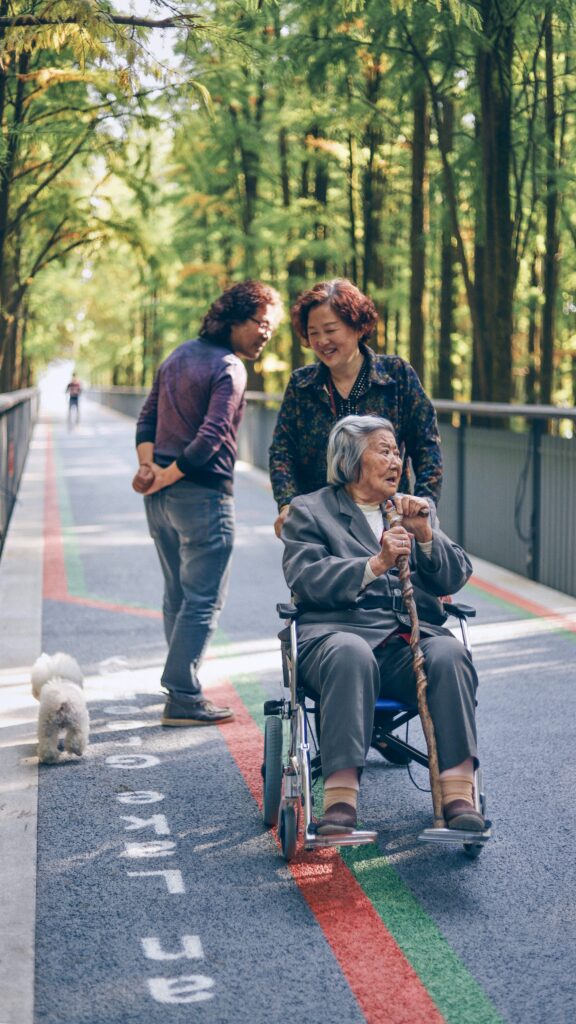This qualification is available on Apprenticeship Standards Only.
CARE LEADERSHIP AND MANAGEMENT – GENERAL ADULT SOCIAL CARE HIGHER APPRENTICESHIP- LEVEL 5
This qualification provides the skills and knowledge needed to manage practice and lead others in adult health and social care provision or in children and young people’s services.
It has five pathways – three for adults and two for children and young people:
- Management
- Advanced Practice
The six pathways cover a wide range of topics including:
- Safeguarding and protection
- Developing and carrying out policy
- Managing care services, change programmes and recruitment
- Promoting and developing best practice
- Supporting development and partnership working
- Care management
- Quality systems and improvement
The Management pathway is suitable for Assistant Managers and Deputy Managers working in day or domiciliary services who are looking to progress their career. It is also appropriate for Managers who have not yet achieved a qualification at this level.
Learners should be at least 19 years old. It is also recommended that they will hold a Level 3 qualification or above in a related area.
Learners will need to be working in the role of Deputy or Manager in an appropriate setting, or have the opportunity to carry out responsibilities associated with these roles to be able to study for the Level 5 Diploma in Leadership for Health and Social Care and Children and Young People’s Services (England) (90 credits).
It can usually be completed within 12/18/24 months
On completion learners can progress to a wide range of job roles depending on the pathway taken. The following list is not all-inclusive, but gives a taster of the opportunities available in either adult or children and young people’s settings:
- Manager
- Deputy Manager
- Assistant Manager
- Care Broker
- Case Manager
- Senior Support Worker
- Day Care Manager
- Residential Care Manager
Please call us or send us a mail to have the unit breakdown/curriculum of this qualification.


ADULT CARE – LEAD ADULT CARE WORKER – LEVEL 3
This qualification develops the knowledge and skills needed when working in a lead adult care worker role in care settings. It covers a wide range of areas including supporting individuals with their physical and emotional care, daily living needs and health and social care procedures. This qualification also aligns to the Apprenticeship Standard for Lead Adult Care Worker.
All those who wish to work or are working in a lead adult care worker role with adults in health and social care settings.
Learners should be at least 16 years old. We do not set any other entry requirements but colleges or training providers may have their own guidelines.
Learners must achieve a total of 58 credits for the Diploma, with 35 of these credits being at Level 3 or above. All learners will need to complete the 9 mandatory units, thereby achieving a total of 28 credits. Learners will need to complete a minimum of 30 credits from the optional units.
The qualification will be assessed using a range of methods. This could include direct observation in the workplace, a portfolio of evidence, written assignments or a task.
Learners can usually complete the qualification in 12–24 months.
Learners will need to be working, volunteering or on practical placement as they will need to show competence in both knowledge and skills.
Learners can progress to the Level 4 Diploma in Adult Care or the Level 5 Diploma in Leadership and Management for Adult Care. Learners may also progress onto qualifications for management or lead practitioner roles in adult care, or to specialist qualifications reflecting the context in which they work.
Career opportunities
Learners can progress into employment in residential or nursing homes, domiciliary care, day centres or some clinical healthcare settings within job roles such as:
- Senior Care Support Worker
- Lead Personal Assistant.
Please call us or send us a mail to have the unit breakdown/curriculum of this qualification.
HEALTHCARE ASSISTANT PRACTITIONER – LEVEL 5
Job profile
Assistant Practitioners work as part of the wider health and social care team and have direct contact with patients, service users or clients providing high quality and compassionate care. Assistant Practitioners work at a level above that of Healthcare Support Workers and have a more in-depth understanding about factors that influence health and ill-health (e.g. anatomy and physiology). Assistant Practitioner is a job title applied to a very wide variety of roles that have been developed locally by employers to meet individual service need. Upon successful completion of this standard, individuals will have obtained the core skills, knowledge and values/behaviours to become an Assistant Practitioner.
Examples of common work activities include assisting in total patient assessment, coordination of care (including referrals to other practitioners) and higher clinical skills such as catheterisation, wound care and discharge planning (1). Assistant Practitioners can be found working in a range of areas such as Cancer Services, Physiotherapy, Genito- Urinary Medicine, Orthopaedics, Hospice Care, Mental Health, Social Care, Community, Occupational Therapy, Learning Disabilities as well as hybrid roles that cross traditional occupational areas. (2) Assistant Practitioners will therefore develop additional skills and knowledge based on their employer’s requirements depending on the clinical or professional area within which they are working.
Responsibilities and duties of the role
An Assistant Practitioner works under the supervision of a Registered Practitioner (3) in accordance with employer
policy, protocols and standard operating procedures. The Registered Practitioner remains accountable for the appropriate and effective delegation of activities and must ensure that the AP
has the competency, confidence and expertise to carry out such activities. Having accepted the activity, the AP is accountable for their actions. In a situation where the AP feels they do not have the necessary skills or ability then they must alert the registered practitioner immediately.

